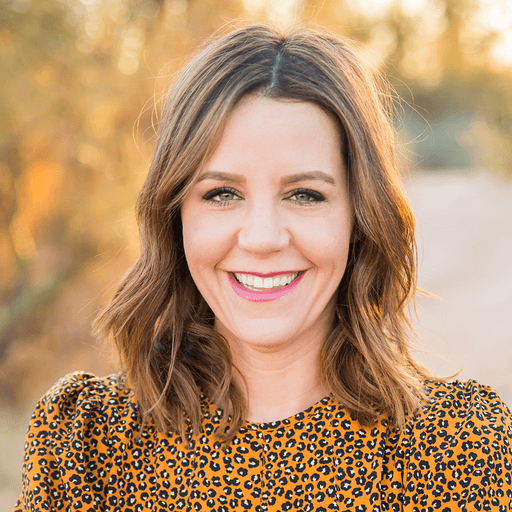Always be learning: How the CRO of Udemy delivers wins that last
Stay up-to-date with data-backed insights
Thank you for your submission.

What skills make an exceptional CRO?
One thing that strikes me about every revenue leader I speak to is their openness to learning. To run a successful sales organization, you must always be willing to learn — but also be capable of putting that knowledge into practice at the same time.
One person who seems to have mastered that skill is Rob Rosenthal of Udemy, who I recently hosted on Reveal.
Rob has over 25 years of experience in the software industry and today serves as Chief Revenue Officer at Udemy — which is fitting, given his commitment to learning. Udemy is an online skills marketplace and learning platform with over 250,000 courses and 75 million learners who have upskilled in the latest technical and interpersonal skills such as programming, marketing, data science, and everything in between.
Even before joining Udemy this year, Rob has an incredible track record of success. At Bloomreach, he played a key role in tripling the company’s revenue between 2020 and 2024. While at Adobe, he helped double the company’s enterprise business in the Americas from 1 billion to 2 billion and significantly contributed to transforming the company’s sales strategy. His leadership in these roles has undoubtedly positioned him as an expert in driving revenue growth and expanding global teams and operations.
Best practices for an aspiring CRO
On the road to becoming CRO for Udemy, Rob has committed to a life of learning that prepared him for every one of his next roles. In the process, he’s picked up some critical qualities and strategies that every sales rep on a similar track can put into practice today to advance their career:
1. Find a mentor (or be one)
To be the best leader you can be, you also need to refine your mentorship capabilities — and the best way to do that is to either find or be a mentor. During his time at Adobe in particular, Rob saw how his leaders invested in their people with training and enablement.
“I like transformation,” Rob says. “I like moving people and organizations from A to B or B to C. The reason I like transformation so much is that not only do you help an org, but you help individuals achieve their goals.”
That begins during the application and interviewing process. Rob makes the effort to understand what every applicant’s motivation is for why they’re leaving their current job, where they are in their lives, and why they want to join Udemy.
But that growth process doesn’t end after employees are hired. Rob also touched on the importance of promoting people “who have a cross-functional mindset — and it can take a little time to figure out who those people are if you’re new to an org.”
2. Have empathy for the field
“I’m in the boat with the field,” he says. “I have great empathy for the field because I’ve grown up in many of the roles they occupy and I understand it.”
And part of having empathy for the field is focusing on the customer and optimizing workflows for maximum efficiency. To do that, Rob encourages leaders to keep meetings brief and their cadences sparse. For example, he prioritizes a “field leadership meeting” that only happens on a weekly basis.
“Kind of like a standup for leaders,” he describes it. The purpose is two-fold: One part is to share tasks and status updates, and the other part is to bring reps and leadership together for visibility and face time. “It’s good for comms and helps everybody stay aligned,” Rob says.
3. Keep it fresh
Rob’s varied career, with its twists and turns, has been an asset, he adds.
And that’s with great intention. He takes away different lessons from each role and then adds it to his “personal playbook” which informs how he leads moving forward. This diversity of perspectives and experiences ensures he has plenty of lessons and experiences to draw from.
“I’ve seen a little bit at each place and I’ve had great people to learn from at each stop, including Udemy,” he says.
4. Always be learning
Glengarry Glen Ross made “always be closing” the phrase that defined sales — but Rob has a different phrase in mind: Always be learning. And, given that philosophy, he couldn’t have picked a better company to work for than Udemy.
“I think about what I’m going to learn over what time period and from who,” he says. Given how many roles he’s been able to occupy over the years, that has afforded him the personal growth he’s experienced and offered him the ability to help others grow.
“What’s special about Udemy is that we have an opportunity to practice what we preach. We’re not only investing in our team, but creating a product with our investment and paying it forward.” For example, Udemy recently announced a new suite of generative AI capabilities to help organizations create more dynamic and personalized learning programs at scale.
Embrace change — and your mistakes
The hidden throughline behind everything that Rob has experienced is a sense of humility. “You’re going to get a lot wrong and you have to be really comfortable with that,” he advises.
Whether it’s learning to lean into criticism, saying something wrong in a meeting, or just plain old facing setbacks, Rob’s guidance is to “grow a thick skin and roll with it.” Mistakes are an opportunity to grow. He admits even he’s not immune after everything he’s accomplished: “I’ve made plenty of mistakes; I’ll make plenty more.”
For more essential tips and strategies like these, listen to episodes of Reveal and subscribe to The Edge for the latest revenue insights.



